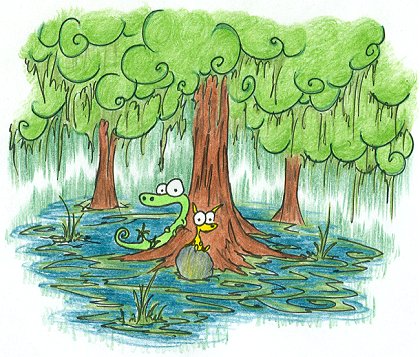 All the bodies are from people who donated for scientific research.
All the bodies are from people who donated for scientific research. "You get so involved in your project, you don't even really realise there's another body lying on the ground, just right beside you." Body Farm student
"You get so involved in your project, you don't even really realise there's another body lying on the ground, just right beside you." Body Farm studentLife on Tennessee's 'Body Farm'
Page last updated at 10:00 GMT, Sunday, 3 July 2005 11:00 UK
BBC NEWS
A two-acre spot in East Tennessee known as the "Body Farm", littered with human corpses, has become a popular spot for real-life crime scene investigators. The Body Farm - part of the University of Tennessee Anthropological Research Facility - was set up in 1971, by forensic anthropologist Dr Bill Bass.
Dr Bass is proud of the success of the unit.
"We have certainly helped a lot of people, solved a lot of crimes, and put some bad people in prison," he told BBC World Service's Outlook programme.
Maggots
The Body Farm receives around 50 bodies a year, which are placed in the woods and other environments around the facility.
Intensive 10-week courses are run on the farm for investigators from police agencies around the US.
They learn the proper way to dig up and retrieve a buried body.
We teach them archaeological techniques so that they can recover evidence and bone in context," says Dr Lee Meadows-Jance, the co-ordinator of the Body Farm and one of the trainers.
A typical storyline of the CSI TV show might be that, when a human body is found, the forensic scientists try to establish how - and how long ago - the victim died.
Some of the methods of doing this have been pioneered by the Body Farm.
Prime among them is identifying the time of death through the presence of maggots, the recently-hatched larvae of blowflies.
READ ABOUT MODERN FORENSIC INVESTIGATION...
http://news.bbc.co.uk/2/hi/americas/4638835.stm














